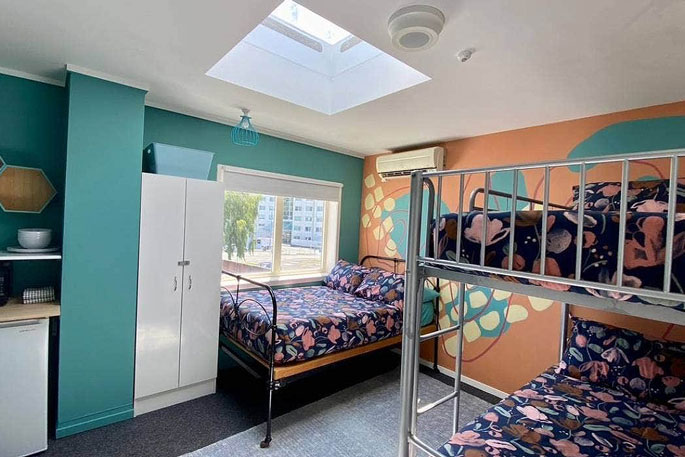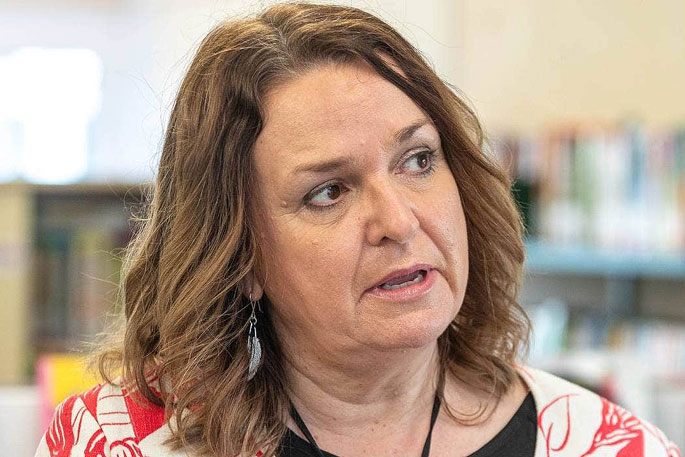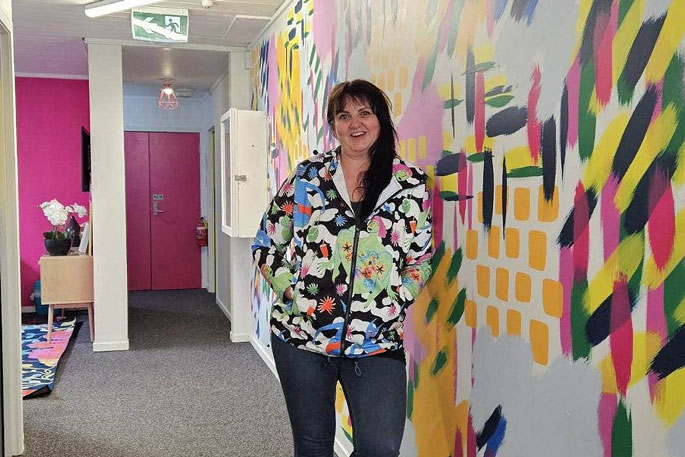A mum living in her car with two babies as well as a family of seven are among those turned away from a Tauranga emergency housing provider, which has lost funding and now faces closure.
It comes as Aroha House was told by the Ministry of Social Development the “need was not there” for emergency housing in the region – and they would no longer be placing new families there.
Aroha House has provided emergency accommodation for homeless families with children since 2020, when Memphis Robson-Frentz converted her Tauranga backpackers to offer a safe, drug and alcohol-free environment with 24-hour staffing and security.
The house accommodates 40 people.
Until now, Memphis was funded as an Emergency Housing provider, but was recently told by the Ministry of Social Development she would no longer receive funding.
“Shocking to hear they are cutting down on emergency housing saying ‘the need was not there’, when you have families in cars and tents all over the city?” she says.
MSD’s acting regional commissioner Graham Allpress confirms the agency is “gradually winding down” its use of Aroha House, “against a backdrop of reduced demand for emergency housing, both in Tauranga and across the country”.
“We currently have two households staying at Aroha House,” says Graham.
“Six other households have moved in recent weeks to a variety of different accommodation.”
 Aroha House offers space for up to 40 people including children who would otherwise be homeless, many of whom had been forced out of rental accommodation due to soaring costs or landlords selling up.
Aroha House offers space for up to 40 people including children who would otherwise be homeless, many of whom had been forced out of rental accommodation due to soaring costs or landlords selling up.
Tauranga’s housing crisis has been in the spotlight in recent years, with soaring rentals of up to $2000 a week, making it one of the most expensive regions in the country to rent a home, with even a garden shed asking $450 a week.
Lack of housing supply in the city means hundreds chase rentals.
Across the road from Aroha House and in front of Tauranga District Court, is Wharepai Domain – once the scene of music festivals such as One Love and Bay Dreams – is now peppered with homeless people living in tents.
There has been complaints about the campsite, but Tauranga City Council’s Stuart Goodman says people won’t be forced to move.
“We do not use bylaws to relocate people. Our approach is to engage with people experiencing homelessness and connect them with local support services.”
Homeless are exempt from enforcement action under the Freedom Camping Act, he says.
 Labour Minister Jan Tinetti said Aroha House had a proven track record. Photo: Bruce MacKay/The Post.
Labour Minister Jan Tinetti said Aroha House had a proven track record. Photo: Bruce MacKay/The Post.
“Aroha House has a proven track record from at least 2020 when they began their journey as emergency housing providers and has been assisting a number of residents into more secure housing in partnership with MSD and other pastoral care providers,” Labour Minister Jan Tinetti says in a letter of support for the house.
Families living at Aroha House told Stuff they are settled until they can access permanent social housing or affordable rentals.
One young couple, aged 20 and 18 years old, had lived there for almost two years with their five-year-old son – but on the day Stuff visited, they were reluctantly packing.
“We’ve been really happy. It’s safe for our son. Some emergency housing motels can be awful with gangs and drugs.”
Meanwhile, a grandmother told Stuff she’d turned to Memphis for support, after she and her two grandchildren had to move out of their Tauranga rental when the landlord sold it.
“I’d never have dreamed I would ever be homeless. But we applied for hundreds of homes - and hundreds of people were applying too. The rents were going too high. I had nowhere to turn.”
The family was offered wraparound support facilitated by Robson-Frenz, supporting them with emergency dental care and settling the teenagers into school.
“We’re on the list for social housing, but people have been in motels for years waiting. That would be so depressing with violence and crime around – terrible for kids.”
Mataora, a solo father to three children under three, became homeless when his wife had to go into hospital. Working as a barber, he couldn’t afford rent on his own.
“This place has good wairua. My kids go to kohanga and are happy here. It’s home to them – for now. I’m proud, I can take care of my children and I don’t want to ask for help. But rentals are impossible to find. Landlords don’t consider you if you’re a solo parent.”
Mataora is now discussing moving to emergency housing with self-contained units for his whānau.
MSD data shows a 22 per cent fall in households in emergency housing in Tauranga over a 12-month period. In the three months to June 2022, there were 147 households in emergency housing in the Tauranga district, compared to 114 in the three months to June 2023.
Nationally, the number of households in emergency housing has fallen from 3903 in August 2022, to 3396 in August 2023.



2 comments
Need Not There? Says Who?
Posted on 17-10-2023 13:54 | By Mommatum
Has MSD lost its mind? What do they mean the need is not there?
They should perhaps take a walk over the road to Wharepai Domain, or ask the mum and babies and the family of seven who were turned away.
While landlords continue to sell rentals, and hundreds of people are applying for every vacancy how can MSD be so heartless as to stop funding for a place that is safe, family friendly and is working. Perhaps MSD’s acting regional commissioner needs to experience homelessness himself. Then perhaps he and his department might come to their senses. Need not there? Says who?
Shocking!
Posted on 19-10-2023 13:48 | By Silverlady
How anyone can imagine that there is 'no need' for a place like this wonderful haven is beyond comprehension. The problem seems to be that these decisions to cut funding are made by people who are living comfortably. They have had no experience of unemployment, nor of finding no place to reside. My heart goes out to those who are affected by this.
How can we, the public ensure that this poorly thought out decision is reversed?
Leave a Comment
You must be logged in to make a comment.